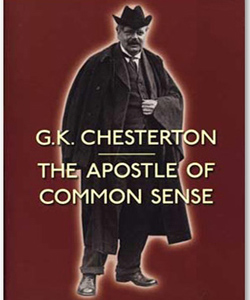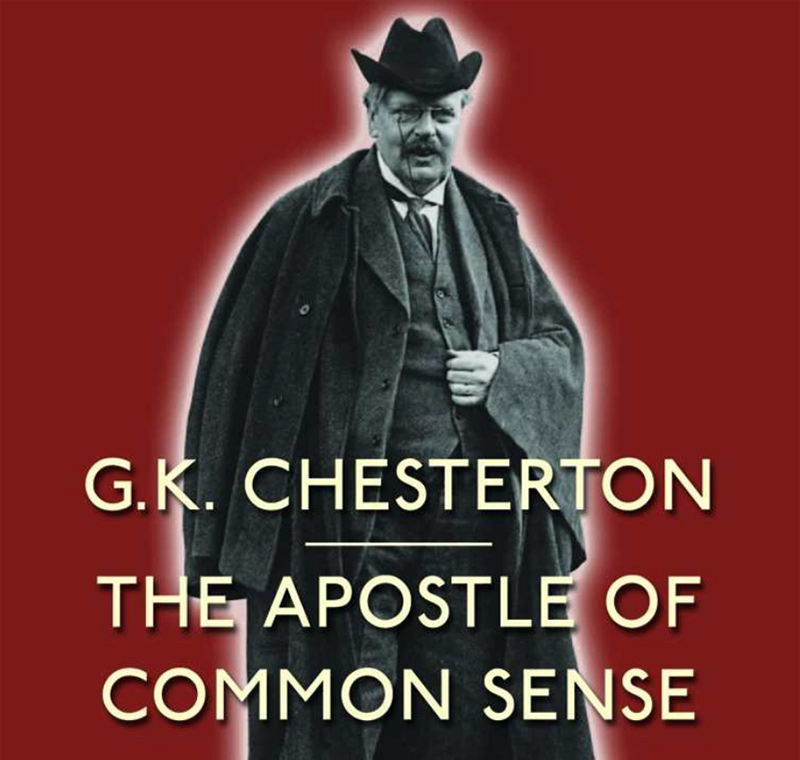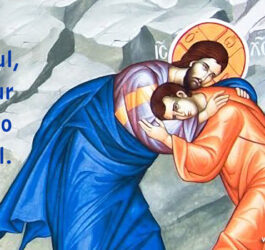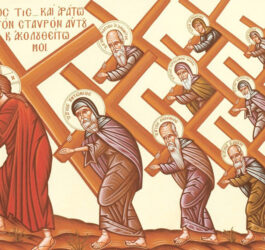 by Chris Banescu –
by Chris Banescu –
G. K. Chesterton was one of the deepest and clearest thinkers of the 20th century. He was also a strong defender of the Christian faith, a modern day apologist in the truest sense of the word. As Dale Ahlquist points out in his book, Chesterton was indeed The Apostle of Common Sense who fearlessly challenged the lies and falsehoods of his time. His insights and logic are as relevant today as they were then.
Chesterton foresaw the coming moral breakdowns that we’re currently experiencing. He understood that the corruption and misuse of language in order to obfuscate the truth were symptoms of a mental breakdown that will inevitably lead to moral corruption. He was right.
According to Chesterton, the modern world’s weakness for euphemism is evidence of a mental breakdown even more than of a moral breakdown. When we use language, not to express the truth, but to disguise the truth, we soon lose our ability to think clearly. It was this mental breakdown, this twisting of words and their meanings, that paved the way to today’s obvious moral breakdown. Chesterton saw it before it was obvious. And he clearly understood and explained the mental breakdown that precedes the moral breakdown.
Ahlquist points out why our educational system and institutions of higher learning have conveniently ignored Chesterton. He was a clear thinker who understood the issues at a deeper level. Chesterton’s common sense puts to shame the confused and muddled opinions of modern day progressive and secular intellectual elites.
That is probably why the modern world has found it so convenient to forget Chesterton. Today’s intellectual establishment does not want to engage a clear thinker like G. K. Chesterton in an actual argument. They do not want controversies settled by argument. They especially do not like the idea of yielding to common sense.
We, who know and understand the reality of out present circumstances and what’s at stake in the moral battles of our age, must also step into the fray. It’s our turn now to explain and defend the truth to the present generations.
Still, we must not be afraid to pick up the argument where Chesterton left off. It is still the same argument, still the same truth that needs to be defended. Chesterton still cheers us on. He says, by way of encouragement, “we are not entitled to despair of explaining the truth; nor is it really so horribly difficult to explain.”




